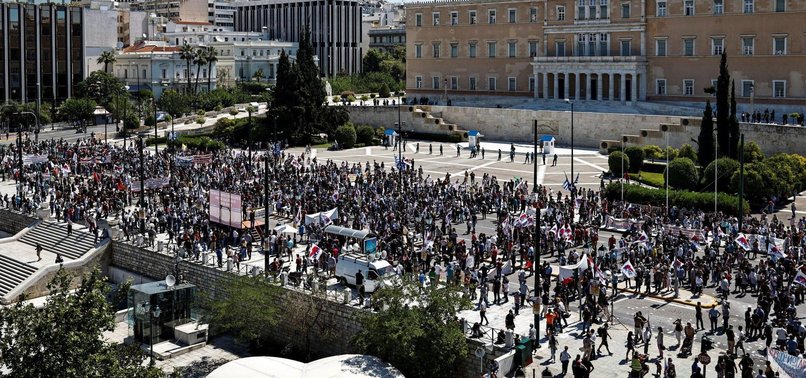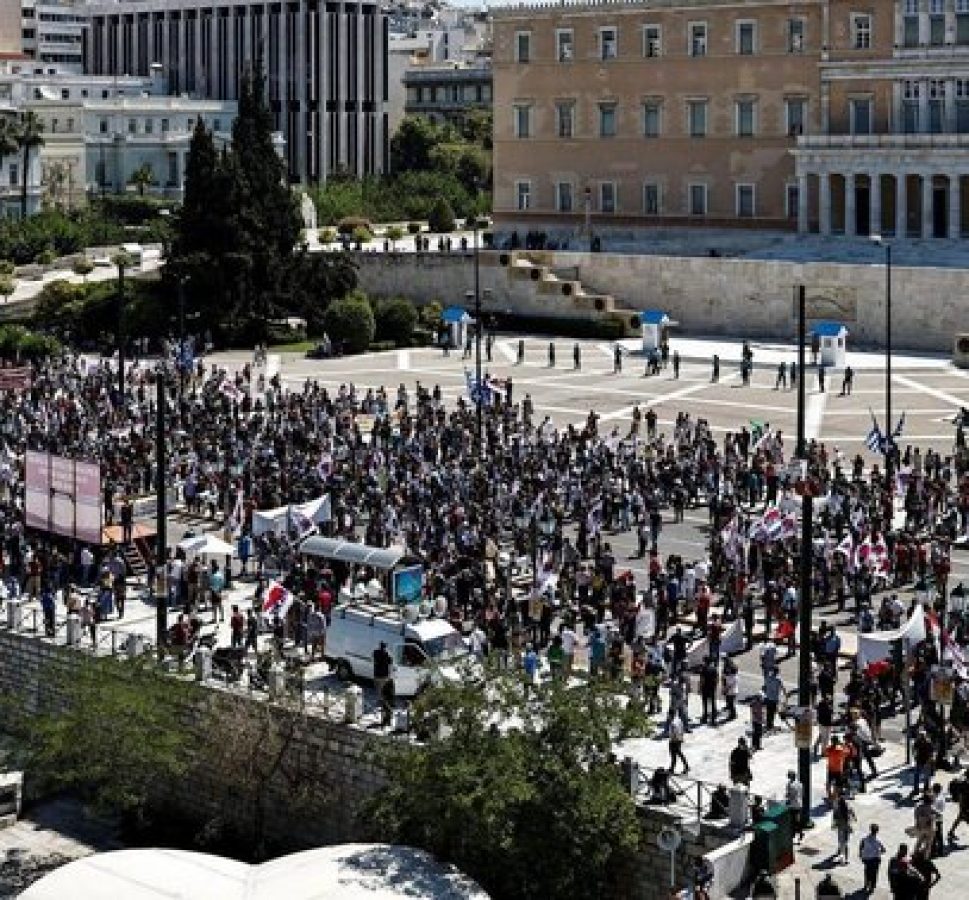
Government blamed ‘human error’, but protesters point to decades of mismanagement and neglect.
Widespread strikes marking the anniversary of Greece’s deadliest rail crash have brought transport services to a standstill as tens of thousands protested.
Trains, ferries, taxis and the metro came to a virtual standstill at midnight on Wednesday in commemoration of the collision a year ago that killed 57. The striking transport workers demanded justice, as well as pay rises.
Police said 30,000 were protesting on the streets, with more than 20,000 people demonstrating in Athens and 10,000 in the northern city of Thessaloniki. A further 1,000 or so, including victims’ relatives, gathered at the site of the crash.
Those relatives and workers are still awaiting the outcome of a judicial investigation into the head-on collision between a freight train and a passenger train on February 28, 2023. Investigators are not due to finish their probe until March 8.
The collision, which occurred outside the central city of Larissa, on a line linking Athens with Greece’s second city Thessaloniki, prompted mourning last year, but also days of angry protests that blamed an unsafe rail system resulting from wider neglect of public services.
Protesters, ranging from rail and hospital workers to seafarers and school teachers, joined the 24-hour walkout by Greece’s largest public sector union ADEDY, which represents about half a million workers.
“One year on, we are back on the streets to shout that we do not forget,” said ADEDY. “Those responsible for the tragedy have still not answered for their criminal acts.”
Flights were unaffected after a court declared that protest plans by air traffic controllers were illegal.
Vital evidence
A station master was arrested hours after the crash. The government says a trial is likely to begin in June.
But many survivors and relatives say that politicians, who are protected under Greek law from prosecution and only subject to investigation by parliament, should also assume responsibility for safety system deficiencies.
Relatives have appointed their own experts to the case, arguing that official investigators wasted time and overlooked vital evidence.
At a news conference on Monday, a committee of experts appointed by the relatives’ group said state officials had failed to look into the causes of the intense fire that broke out just after the crash.

Committee member Giorgos Vlasopoulos alleged that the freight train was carrying illegal cargo, reporting that the “huge” explosion after the collision gave rescuers chemical burns.
“We’ve found substances used to adulterate fuel,” she said. In a speech at the European Parliament this month, she said the government had “tried to tamper with and cover up incriminating evidence”.
Potentially valuable CCTV footage was erased two weeks after the disaster without being assessed, and the site was bulldozed and paved over just days after the crash, the experts said.
‘Human error’
In the wake of the tragedy, Prime Minister Kyriakos Mitsotakis said the crash was “due to a tragic human error”, promising that it would be “fully” investigated.
He later apologised for the accident and said he would improve Greece’s railway safety.
Kostas Karamanlis, the transport minister at the time, told a parliamentary committee of inquiry this month that on-duty staff were to blame.
If they had not “serially broken” safety regulations, the crash would not have occurred, he alleged.
But many believe the disaster was caused by official neglect. For decades, Greece’s 2,552km (1,586-mile) rail network has been plagued by mismanagement, poor maintenance and obsolete equipment.
Panagiotis Terezakis, head of Hellenic Railways Organisation (OSE), which operates the rail network, said it was now safe.
The OSE has installed 300 infrared cameras in tunnels since the crash and had made progress on the installation of safety systems, he said, although he acknowledged that more needs to be done.






